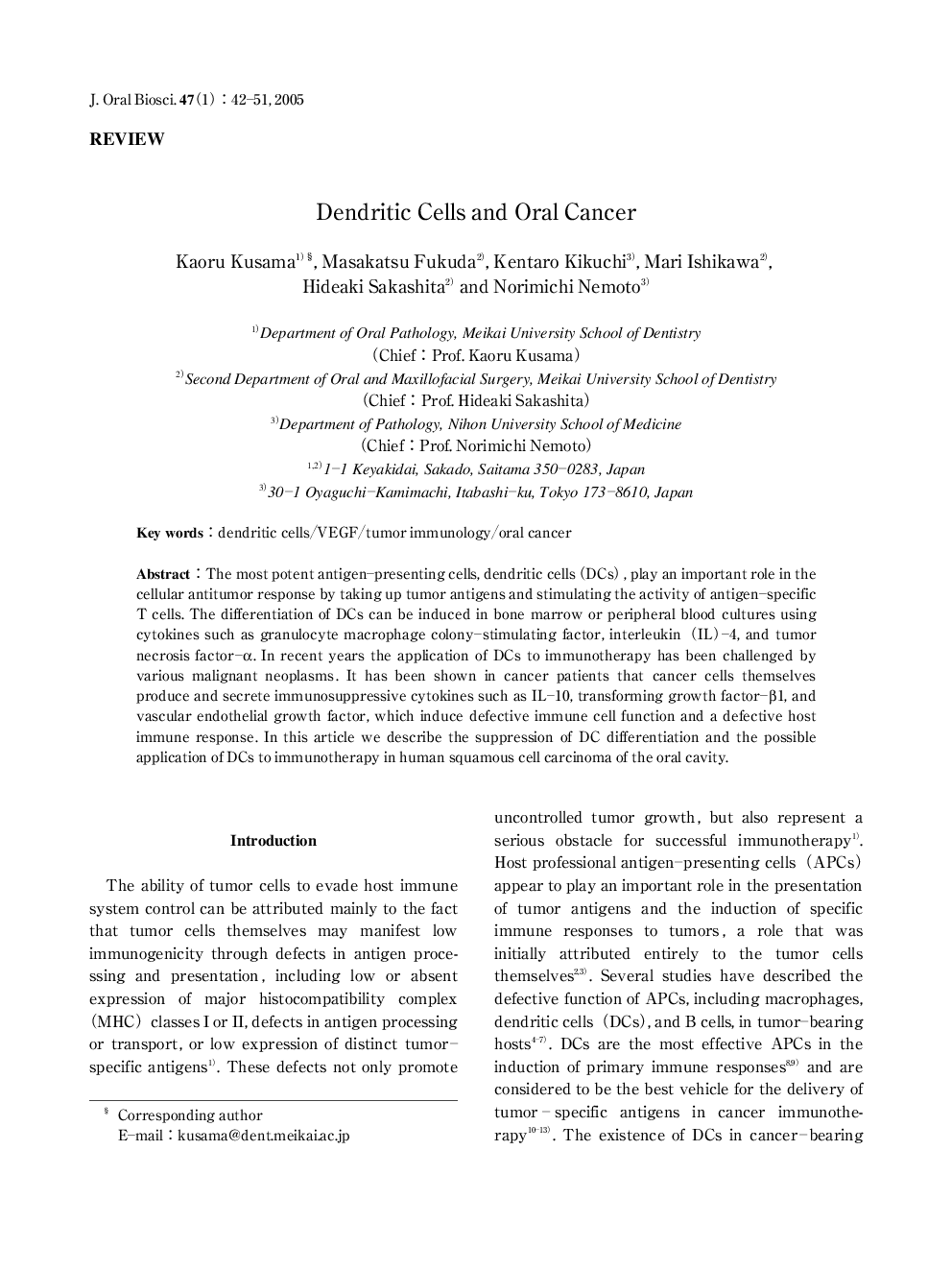| Article ID | Journal | Published Year | Pages | File Type |
|---|---|---|---|---|
| 9103408 | Journal of Oral Biosciences | 2005 | 10 Pages |
Abstract
The most potent antigen-presenting cells, dendritic cells (DCs), play an important role in the cellular antitumor response by taking up tumor antigens and stimulating the activity of antigen-specific T cells. The differentiation of DCs can be induced in bone marrow or peripheral blood cultures using cytokines such as granulocyte macrophage colony-stimulating factor, interleukin (IL)-4, and tumor necrosis factor-α. In recent years the application of DCs to immunotherapy has been challenged by various malignant neoplasms. It has been shown in cancer patients that cancer cells themselves produce and secrete immunosuppressive cytokines such as IL-10, transforming growth factor-β1, and vascular endothelial growth factor, which induce defective immune cell function and a defective host immune response. In this article we describe the suppression of DC differentiation and the possible application of DCs to immunotherapy in human squamous cell carcinoma of the oral cavity.
Related Topics
Life Sciences
Biochemistry, Genetics and Molecular Biology
Clinical Biochemistry
Authors
Kaoru Kusama, Masakatsu Fukuda, Kentaro Kikuchi, Mari Ishikawa, Hideaki Sakashita, Norimichi Nemoto,
